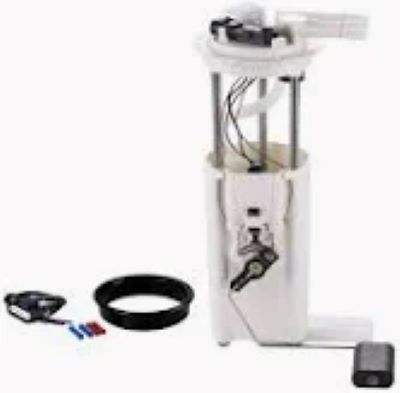How Long Does a Fuel Pump Last? The average lifespan of the fuel pump is typically 100,000 to 150,000 miles depending on driving habits, fuel quality and maintenance levels. Healthy fuel systems can prolong the life of a pump but running on low fuel or using contaminated fuel can rapidly degrade it. Research has shown that vehicles used often with minimal fuel can experience a 20% decrease in the life of the fuel pump as it operates cooler and is under less strain when immersed in fuel, which cools it.
A fuel pump is responsible for transporting gasoline from the tank to the engine at a specified pressure, often somewhere between 40 and 60 PSI in most modern vehicles. This constant pressure is essential for the motor to run effectively, and as such over time the wear and tear on parts, everything from seals and filters to even the pump motor itself, can result in a loss of performance or total failure. According to industry reports, 7% of automobile breakdowns are related to fuel pump failures which emphasizes the significance for timely maintenance.

If fuel filters are serviced on a regular schedule, proper and correct installation increases the expected service life even longer, usually more than 150,000 miles or more correctly built fuel pumps like Bosch and Delphi. As fuel system expert Larry Kosilla said, “how well it's cared for and the conditions it's exposed to are closely related to how long any part will last” This highlights the necessity of correct installation, clean fuel and adequate quantities in the tank to prevent burning out the pump.
This will mean that any contaminants within your fuel can clog the filter and force the pump into working harder reaching just 85% of its efficiency. In severe cases, the contaminants can actually become large enough to cause the pump to fail prematurely, which is why it's important to replace fuel filters every 30-40k miles in order to prolonging the life of a fuel pump.
Heat can shorten the life of a pump at times in other ways as well. In areas where it is hot day in and day out the fuel pump may overheat more often which means that its internals are going to wear faster. Drivers in such conditions can expect the fuel pump to fail 10% earlier than it would for people in cooler climates.
Though changing a fuel pump can demand some $400 to $800, to do maintenance ensure costy replacement may be postpone. Looking to change out an existing pump for something better, or upgrade to an aftermarket model? Fuel Pump also offers sturdy parts for your vehicle, so it remains in good form for as long as possible.